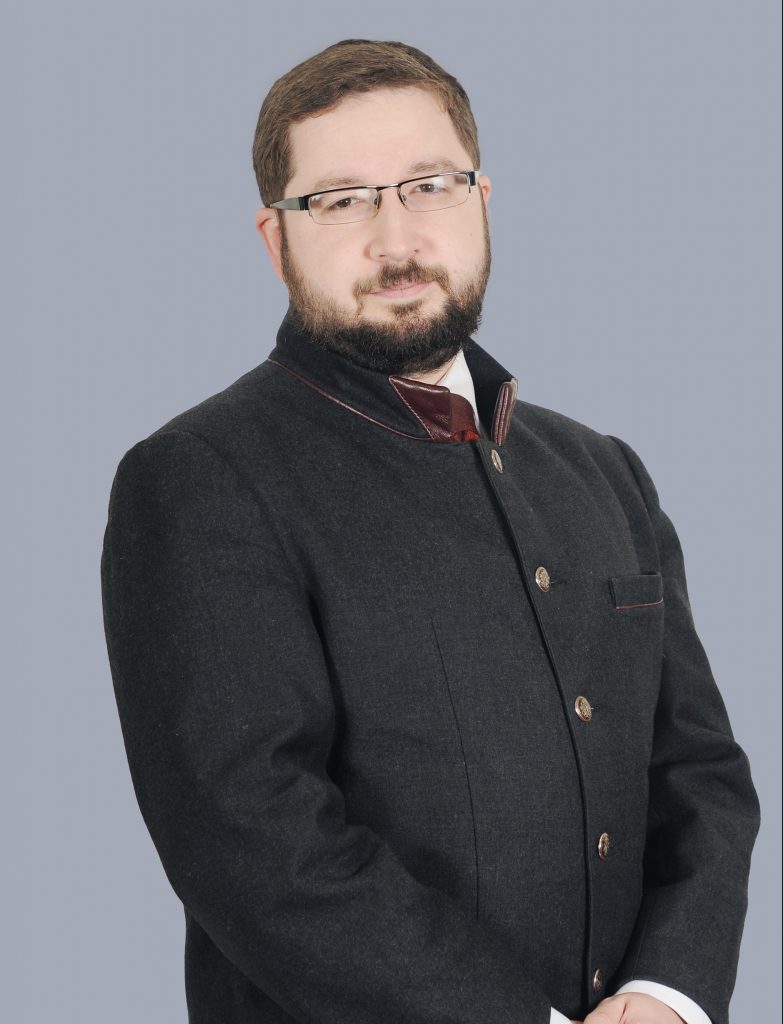
Andrej Rudanov
Head of Life Sciences
Practice Group
+370 686 80049
- Education
- 2017 Master of Business Administration, Vilnius Gediminas Technical University
- 2017 Master of Business Administration, Moscow’s Lomonosov State University (Russia)
- 2003 Master of Law, Vilnius University (Lithuania)
- Languages
- Lithuanian, English, Russian
- Professional activities
- 17 years of experience in law in the field of healthcare and life sciences
- As of 2016 – Head of Life Sciences Practice Group at law firm Drakšas, Mekionis, Smirnov and Partners
- 2007–2016 senior associate at law firm TGS Baltic (formerly TARK, GRUNTE, SUTKIENE and Sutkienė, Pilkauskas and Partners)
- 2007 Head of Drugs Safety and Information Department, State Medicine Control Agency
- 2006–2007 deputy director at Pharmaceutical Products Distribution Inspectorate, State Medicine Control Agency
- 2006 head of Licensing Department at State Medicine Control Agency
- 2003–2006 lawyer (senior specialist) at Pharmaceuticals Department under the Ministry of Health
- 2000–2003 assistant to member of parliament in the Healthcare Committee of Parliament of the Republic of Lithuania
- Academical activities
- 2016–2017 assistant at Vilnius University, Faculty of Medicine. Subject – pharmaceutical law
- 2004–2008 lecturer, assistant at Pharmacy Department of Lithuanian University of Health Sciences. Subjects – pharmaceutical law, GMP, GDP, GPP
- Areas of expertise
- Healthcare and life sciences covers:
- By business industries: healthcare and medical services (family medicine, odontology, orthopedics and traumatology, plastic surgery, diabetes, oncology and other services), pharmaceutical areas(medicinal products, advanced therapy medicinal products, homeopathy, medical devices), food areas including agriculture (seed and grain, meat products, milk and other products, mineral water and soft drinks, food supplements and other), cosmetics and health promotion (functional cosmetics, aromatherapy, SPA and other)
- By content and scope of legal services: legislative process, product introduction to market, product registration and notification services, obtaining licenses and permits, clinical trials, data protection, e-health and national health registers, commercial secrets, patient contracts, legal advice on marketing, commercials and product promotion, risk control, good manufacturing practice, good distribution practice, good pharmaceutical practice, description and protocols of healthcare procedures
- Publications
- Chapter 5 “Staff matters” in the Office Administration Guide. Verslo žinios, 2008 m. rugsėjo mėn.
- New Wording Ff the Law Nn the Rights of Patients and Compensation of Damage To Their Health: Physician vs Patient Or Physician With the Patient? Lietuvos gydytojo žurnalas. 2010, No. 4.
- Role Of a Physician In The Investigation of Occupational Accidents And Diagnosis Of Occupational Diseases. Possible Consequences. Lietuvos gydytojo žurnalas. 2009, No. 10-11.
- Informed patient consent: whether necessary in all cases and in what form. Lietuvos gydytojo žurnalas. 2009, Nr. 8.
- Liability Insurance in the Health System: Theory And Practice. Lietuvos gydytojo žurnalas. 2009, No. 4
- Legal Regulation of Medicinal Product Promotion. Farmacija ir laikas. 2010, No. 3
- Competence and Responsibilities of Pharmacy Manager, Pharmaceutical Activities Manager and Pharmaceutical Specialist. Implementation of Good Pharmaceutical Practice. Farmacija ir laikas. 2010, No. 1
- Parallel Imports and Repackaging in Pharmaceutical Activities. Farmacija ir laikas. 2009, No. 10
- Professional Secrets in the Work of a Pharmacist – What is It? Farmacija ir laikas. 2009, No. 6
- Patient’s Privacy v. Pharmacists Responsibility. Farmacija ir laikas. 2009, No. 4
- What Does Patient Expect from a Pharmacy? Pharmaceutical Services from Patient Perspective. Farmacija ir laikas. 2009, No. 1
- Lithuanian Chamber of Pharmacists. Causes and conditions of occurrence. Farmacija ir laikas. 2008, Nr. 8.
- Legal Aspects of Pharmaeconomics: Reimbursed Medicinal Products and Pharmaceutical Services. Farmacija ir laikas. 2008, No. 6
- Pharmacists and Pharmacy Specialists Responsibility for Damage Caused to Patients. Farmacija ir laikas. 2008, No. 5
- Food Supplements for Medicinal Purposes: How Can It Be Done? Farmacija ir laikas. 2008, No. 4
- Guidelines for Preparation of Pharmacy Practice and Procedures. Farmacija ir laikas. 2008, Nr. 2–3.
- Legal Regulation of Pharmaceutical Waste: Rights, Obligations and Responsibilities. Farmacija ir laikas. 2008, No. 1
- Development and implementation of a guide to good pharmacy practice and procedures. Farmacija ir laikas. 2007, Nr. 9.
- Quality management and application of its principles in pharmacy activities. Pharmacy and time. 2007, Nr. 8.
- The work of a pharmacist and a pharmacist’s assistant (pharmacist) in a pharmacy: rights and obligations. Farmacija ir laikas. 2007, Nr. 7.
- Activities and Legal Requirements for a Pharmacy Specialist: Violations, Liability and Sanctions. Farmacija ir laikas. 2007, No. 5
- New law and the work of pharmaceutical professionals. Farmacija ir laikas. 2006, Nr. 7.
- Trade union: a tool to protect the interests of employees or the interests of the employer? Farmacija ir laikas. 2005, Nr. 6.
- Establishment and development of pharmacy networks: legal conditions and preconditions. Farmacija ir laikas. 2004, Nr. 3.
- Understanding Competition Requirements in the Context of Pharmacies. Farmacija ir laikas. 2003, No. 9
- Errare Humanum Est. Sed Medico? Medicinos ir farmacijos žinios. 2003, Nr. 4-5
- Legal Requirements of Compensating Patients Damages. Medicinos ir farmacijos žinios. 2003, No. 3
- Reprimanding a Doctor. On What Grounds? Medicinos ir farmacijos žinios. 2003, Nr. 2
- Dismissing a Doctor From Work. Medicinos ir farmacijos žinios. 2003, No. 1